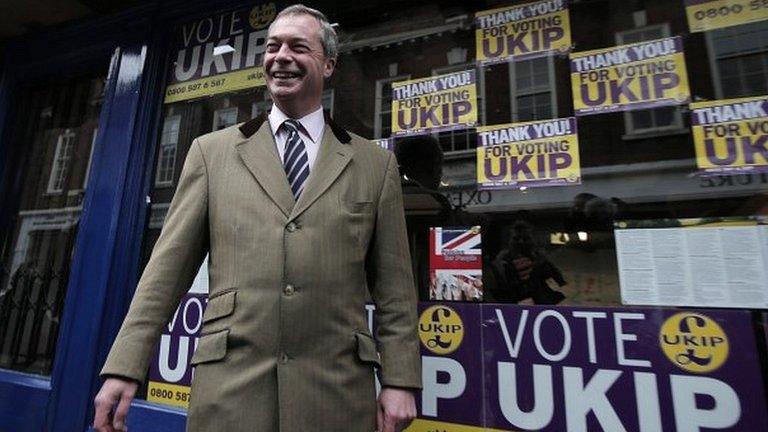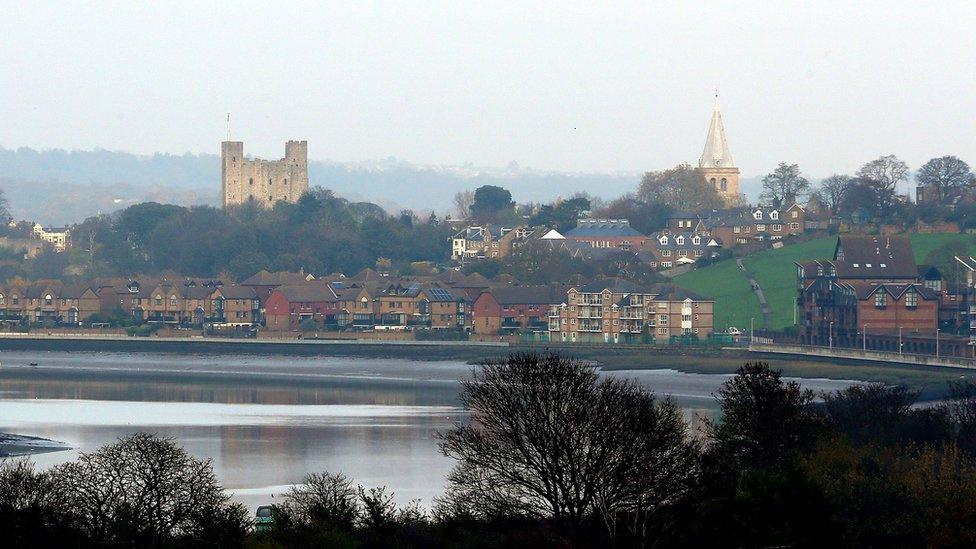UKIP - dealing with the devil
- Published
The BBC's Nick Robinson interviews UKIP's leader Nigel Farage
After UKIP's latest by-election victory, Nigel Farage says he's aiming to hold the balance of power after the next election.
He told me that he would do a deal with the devil - in other words supporting either David Cameron or Ed Miliband to be prime minister - if they delivered his party's principal objective: a clear in/out referendum on Britain's membership of the EU.
Farage insists he's no new Nick Clegg as he doesn't want his bum on a ministerial car seat.
So, what else would he and his party back if they could decide who governed at Westminster? I invited Nigel Farage to answer a few quick-fire questions on his attitudes.
"Was he in favour of spending cuts or increases?" I asked. At first, he was reluctant to answer, insisting he wanted to cut the deficit and wasteful spending. However, he did eventually say that he wanted to cut public spending.
"Tax cuts or tax rises?" I asked next. Tax cuts for lower paid workers he replied.
"More, or less ,private sector involvement in the NHS?" His reply was interesting - it was less. This, despite the fact, that up until two years ago, he was arguing to end the NHS as we know it and to establish an insurance system run by private companies who would, he claimed, be more efficient.
Didn't this suggest that far from "telling it like it is" - as he often claims - he tailors his views to whatever the public will stomach? Not surprisingly, he rejects that.
Voters will ask more questions like this and will also scrutinise the answers the closer Mr Farage gets to doing a deal with the devil.
- Published21 November 2014

- Published20 November 2014
